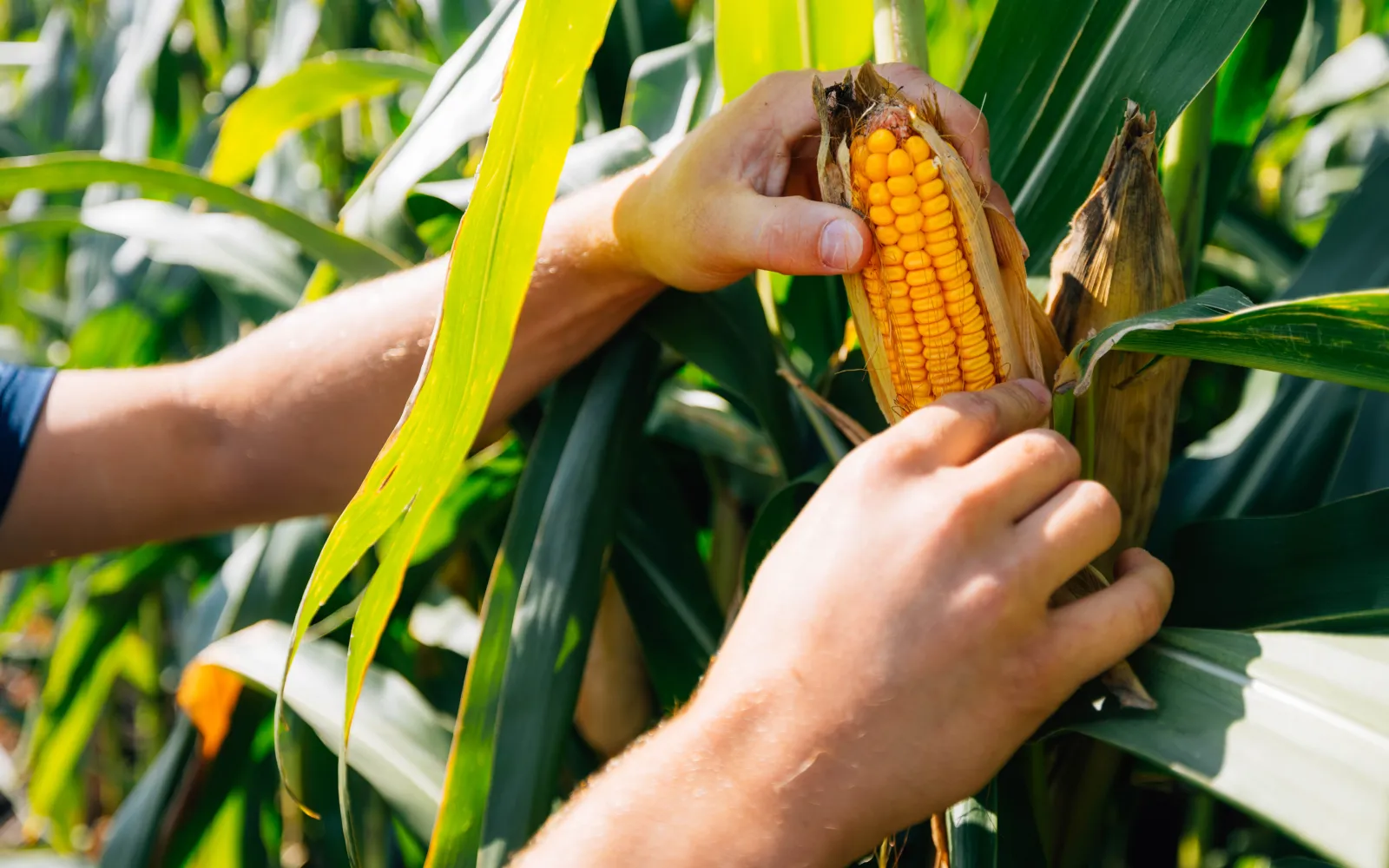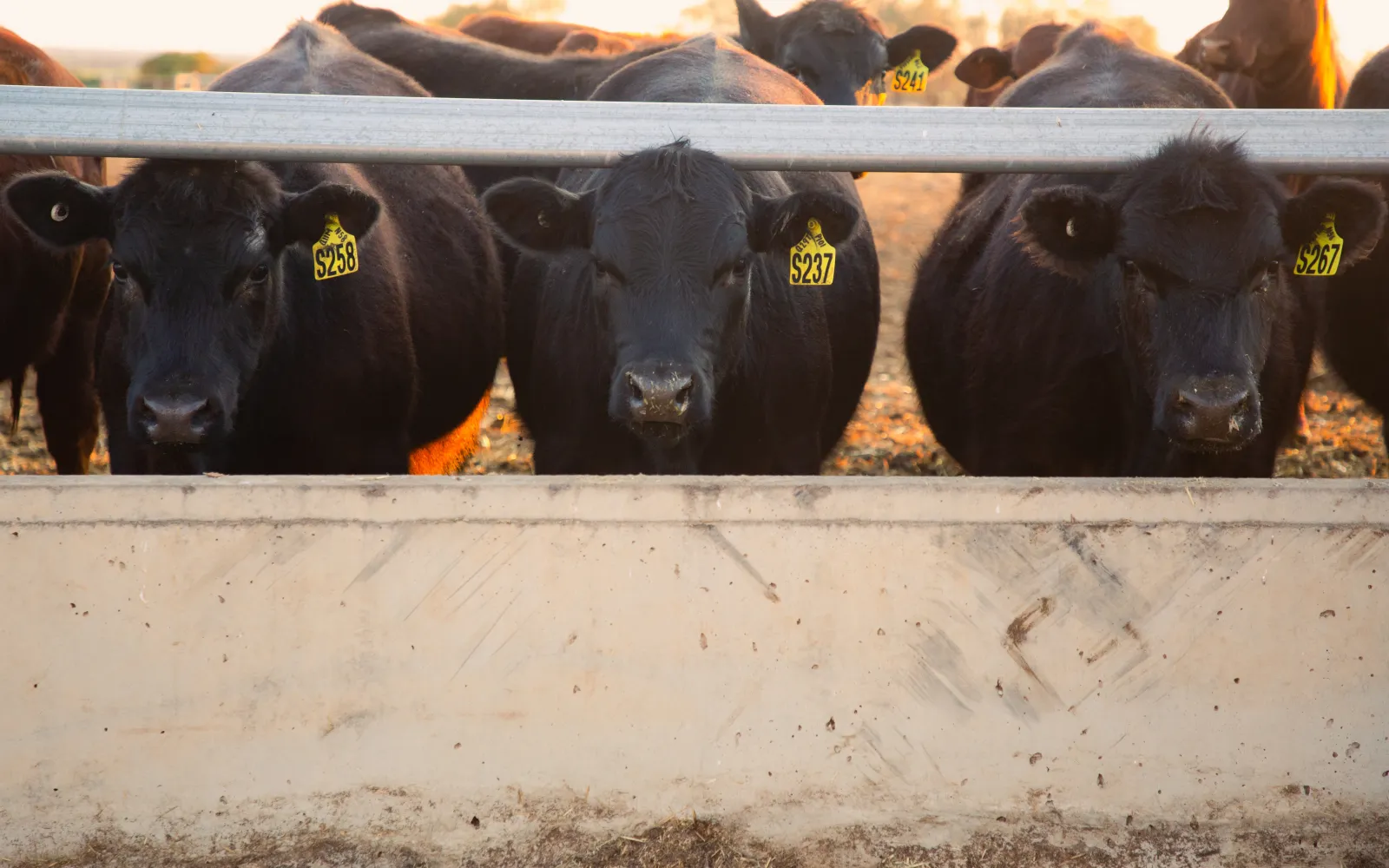

Pivot Bio
Reprogramming soil microbes to produce nitrogen sustainably
Synthetic nitrogen fertilizers come with a host of environmental challenges. The production, bulk transport, and use of these fertilizers is responsible for more than 5% of greenhouse gas emissions. And of the tens of millions of tons of nitrogen applied in fields each year, only 35% is actually used by the plants. The remaining 65% escapes as pollution in groundwater, waterways, oceans, and the atmosphere.
Enter Pivot Bio, a DCVC portfolio company that has developed a groundbreaking solution to these problems that also delivers tangible benefits to farmers. By using genetically modified microbes that grow at plant roots and convert atmospheric nitrogen into a form the plants can use, Pivot Bio’s technology offers a targeted, sustainable alternative to synthetic fertilizers.
The proof is in the numbers. In 2023, U.S. farmers used Pivot Bio’s products on over 5 million acres of corn, up from just over 3 million in 2022 — an unprecedented rate of adoption for new crop nutrition technology. Moreover, a recent study from the University of Kentucky showed that replacing just 40 pounds of synthetic nitrogen with Pivot Bio’s PROVEN® 40 microbial nitrogen increased corn yields by an average of 11 bushels per acre. It’s no surprise that Pivot Bio was chosen as a finalist in both the Agriculture and General Excellence categories on Fast Company’s 2024 list of World Changing Ideas.
As the global agriculture industry faces increasing pressure to reduce its carbon footprint, Pivot Bio’s solution is gaining traction as a key tool in the fight against climate change.
We sat down with Pivot Bio CEO Chris Abbott (right) and chief innovation officer and co-founder Karsten Temme (left) to learn more about the science behind their microbial nitrogen technology, the challenges of scaling it up, and how it fits into the broader trend of agrifood companies embracing sustainability.
DCVC: Can you explain the core technology behind Pivot Bio’s microbial nitrogen products and how it differs from traditional synthetic nitrogen fertilizers? What are the key advantages of this microbial nitrogen approach?
Chris Abbott: Our technology revolves around going to the source of the nitrogen problem for growers. Synthetic nitrogen, while it has enabled farmers to feed half the world, has inherent limitations. For one, it’s volatile, meaning it can easily escape into the atmosphere as a gas, contributing to air pollution and climate change. But it can also run off into water, and it’s an inefficient nutrient source for plants.
Our approach uses naturally occurring microbes that live on the root system of the plant. Using gene editing technology, we engineer these microbes to provide nitrogen fixation throughout the growing season, directly to the plant’s roots. Because it’s not water-soluble like synthetic nitrogen, it doesn’t leach away when it rains. And it’s spoon-feeding the plant all season long.
Karsten Temme: To build on what Chris said, the reason synthetic fertilizer has been produced away from farms in large, centralized facilities is to reach the scale and economies needed for the Haber-Bosch process [the energy-intensive process used to manufacture ammonia, the key ingredient in synthetic nitrogen fertilizers]. But this means you have to store that nitrogen in the soil until the plant can access it, leading to inefficiencies and losses.
Our microbes eliminate that problem by producing nitrogen directly at the root level, on demand. This weatherproofs the nitrogen and eliminates the need for all the equipment and infrastructure used to manufacture, transport, and apply synthetic fertilizer. It’s a much more efficient and sustainable way to deliver nitrogen to crops.
DCVC: Pivot Bio has been rapidly expanding, with plans to enter new markets like Brazil. What are the key challenges in scaling up production and distribution of your microbial products, and how are you addressing them?
Chris Abbott: There are two key challenges. First, we can always be better at understanding how our products work in different conditions and continuing to improve them. That’s just part of working with biological products.
The second is overcoming the incumbency of synthetic fertilizers. Many growers have been using them for decades and there’s a behavioral entrenchment. But that’s starting to change as growers see the results their neighbors are getting with our products – maintaining or increasing yields while cutting nitrogen application by between 40 and 80 pounds per acre.
On the industry side, now that we’ve reached a certain scale, the major players in seeds, inputs, grain processing, and CPG [consumer packaged goods, such as food and beverage products] are starting to see how our microbial nitrogen can be an integral part of the solution to their sustainability challenges. The whole supply chain is coming around.
Karsten Temme: I think the opportunity to address both the challenges Chris mentioned lies in how they come together. With our technology, we’re eliminating nitrogen limitation, which is the most limiting factor in farming. This opens up an entirely new world agronomically and economically that isn’t attainable with the current way of farming. It allows us to look for the next challenge that needs solving. Is it another micronutrient? Managing weather risk? An aspect of operations that needs to change?
In all those cases, there is somebody else’s product or solution that can be brought to bear to move the entire farm forward. We’re beginning to see farmers coming to us, asking for help to better understand how to get the most out of fertility broadly, how to fit our product in with everything else they’re doing, and what the future of fertilizer looks like. This allows us to have a much different type of conversation with partners across the industry and to be a partner for farmers in a way that has never been possible.
DCVC: The global agriculture industry is under increasing pressure to reduce its environmental impact, and large agrifood companies are responding by adopting more sustainable solutions. How does Pivot Bio’s product line fit within this trend?
Chris Abbott: If you look at the Scope 3 emissions for most big food companies [Scope 3 emissions include all the indirect emissions that occur in a company’s value chain, both upstream and downstream], the use of synthetic fertilizer in their supply chain is often the largest contributor. You can’t solve that problem without solving the nitrogen challenge. That’s why we’re seeing tremendous interest from major brands in how our products can help them meet their sustainability goals.
One way we’ve been able to link this directly is through our N‑OVATORTM program, where growers who use our products to reduce synthetic nitrogen application can generate verified nitrogen reduction credits. Big brands like Nestlé are paying farmers for these credits as a way to reduce their own Scope 3 emissions. For the farmer, it’s an additional revenue stream and a rebate of 30 – 40% on their Pivot Bio product.
We think this combination of better margins for farmers, selling into sustainability-driven grain markets, and the operational benefits of our product will drive a fundamental shift toward microbial nitrogen solutions. Once you’ve made that transition and seen the benefits, it’s hard to go back.




